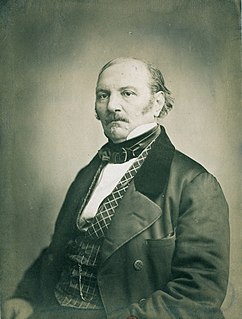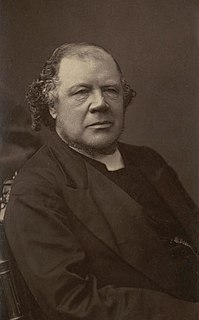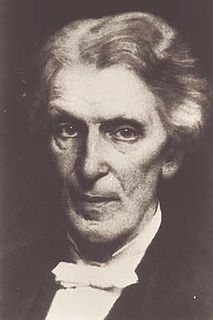A Quote by William Cowper
The parable of the prodigal son, the most beautiful fiction that ever was invented; our Saviour's speech to His disciples, with which He closed His earthly ministrations, full of the sublimest dignity and tenderest affection, surpass everything that I ever read; and like the spirit by which they were dictated, fly directly to the heart.
Related Quotes
Amid the worry of a self- condemnatory soliloquy, his demeanour seemed grave, perhaps cold, both to me and his mother. And yet there was no bad feeling, no malice, no rancour, no littleness in his countenance, beautiful with a man's best beauty, even in its depression. When I placed his chair at the table, which I hastened to do, anticipating the servant, and when I handed him his tea, which I did with trembling care, he said: "Thank you, Lucy," in as kindly a tone of his full pleasant voice as ever my ear welcomed.
Many years ago, our father Ibrahim (AS) made a choice. He loved his son. But He loved God more. The commandment came to sacrifice his son. But it wasn't his son that was slaughtered. It was his attachment to anything that could compete with his love for God. So let us ask ourselves in these beautiful days of sacrifice, which attachments do we need to slaughter?
I closed my eyes and he kissed my eyelids, barely brushing them with his lips. I felt safe, at home. I felt as if here, against his body, was the only place in which I belonged. The only place I had ever wanted to be. We lay in silence for a while, holding each other, our skin merging, our breathing synchronized. I felt as if silence might allow the moment to last for ever, which would still not be enough.
Surely there is a fitness in the institution of the Lord's Supper as a standing memorial by which the church at large may commemorate the grandest act, and by which the heart of each individual believer may be reminded of his dearest friend. You, who have learned to love the Saviour, will prize His ordinance for the Saviour's sake. You who rejoice in the salvation purchased by His dying, will not fail with gratitude and faith to show the Lord's death until He come.
It was in His parting sorrow--that Jesus asked His disciples to remember Him; and never was entreaty of affection answered so; for ever since has His name been breathed in morning and evening prayers that none can count, and has brought down some gift of sanctity and peace on the anguish of bereavement, and the remorse of sin.
To ignore, repress, or dismiss our feelings is to fail to listen to the stirrings of the Spirit within our emotional life. Jesus listened. In John's Gospel we are told that Jesus was moved with the deepest emotions (11:33)... The gospel portrait of the beloved Child of Abba is that of a man exquisitely attuned to His emotions and uninhibited in expressing them. The Son of Man did not scorn of reject feelings as fickle and unreliable. They were sensitive antennae to which He listened carefully and through which He perceived the will of His Father for congruent speech and action.
Our Lord Jesus is ever giving, and does not for a solitary instant withdraw his hand. As long as there is a vessel of grace not yet full to the brim, the oil shall not be stayed. He is a sun ever-shining; he is manna always falling round the camp; he is a rock in the desert, ever sending out streams of life from his smitten side; the rain of his grace is always dropping; the river of his bounty is ever-flowing, and the well-spring of his love is constantly overflowing.
When, in short, we shall have unlearned everything which has been taught since his [Jesus'] day, and got back to the pure and simple doctrines he inculcated, we shall then be truly and worthily his disciples: and my opinion is that if nothing had ever been added to what flowed purely from his lips, the whole world would at this day have been Christian.






































